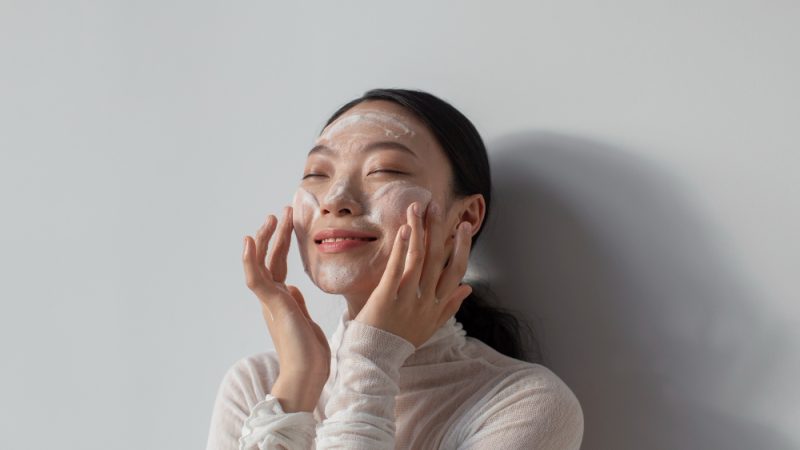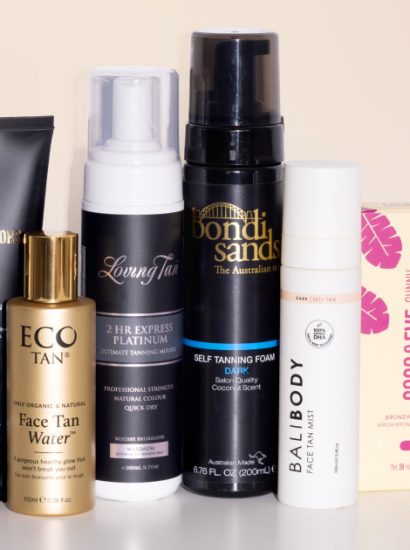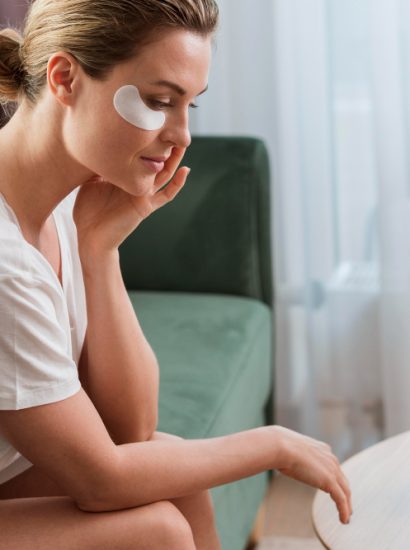Achieving healthy, glowing skin requires a carefully curated skincare routine tailored to your specific skin type. Whether you have oily, dry, combination, sensitive, or normal skin, there are essential products that can help you maintain a radiant complexion. In this article, we will explore ten must-have skincare products for every skin type and provide tips on how to use them effectively. Let’s dive into “In Your Face Skincare” and discover the best products to enhance your natural beauty.
In Your Face Skincare: Cleanser-The Foundation of Skincare
A good cleanser is the cornerstone of any skincare routine. It helps remove dirt, oil, and impurities that accumulate on your skin throughout the day. For oily and combination skin, a gel or foaming cleanser with salicylic acid can help control excess oil and prevent breakouts. Dry and sensitive skin types should opt for a gentle, hydrating cleanser with ingredients like glycerin or hyaluronic acid to avoid stripping the skin of its natural moisture.
In Your Face Skincare:Toner- Balancing and Preparing the Skin
Toners help balance the skin’s pH levels and prepare it for the next steps in your skincare routine. They can also provide additional benefits such as hydration, exfoliation, and soothing. For oily and acne-prone skin, look for a toner with witch hazel or tea tree oil. For dry and sensitive skin, a toner with rose water or chamomile can be calming and hydrating.
Exfoliator: Removing Dead Skin Cells
Exfoliation is key to maintaining smooth, radiant skin by removing dead skin cells that can clog pores and dull the complexion. Chemical exfoliants with alpha hydroxy acids (AHAs) or beta hydroxy acids (BHAs) are suitable for all skin types, as they gently dissolve dead skin cells without the harsh scrubbing of physical exfoliants. However, sensitive skin types should use exfoliants sparingly to avoid irritation.
In Your Face Skincare:Serum-Targeted Treatment for Skin Concerns
Serums are concentrated treatments designed to address specific skin concerns, such as acne, ageing, hyperpigmentation, or dehydration. For oily and acne-prone skin, a serum with niacinamide or salicylic acid can help control oil and reduce breakouts. For dry and ageing skin, a hydrating serum with hyaluronic acid or a serum with vitamin C can boost moisture levels and brighten the complexion.
Moisturiser: Locking in Hydration
Moisturisers are essential for all skin types, as they help lock in hydration and create a protective barrier against environmental aggressors. Oily skin types should look for lightweight, oil-free moisturisers, while dry skin types can benefit from richer, cream-based formulas. Combination skin types may need to use different moisturisers for different areas of the face. Sensitive skin types should choose moisturisers with soothing ingredients like aloe vera or ceramides.
Sunscreen: Protection from Harmful UV Rays
Sunscreen is a non-negotiable step in any skincare routine. It protects the skin from harmful UV rays that can cause premature ageing, hyperpigmentation, and skin cancer. For oily and acne-prone skin, a lightweight, non-comedogenic sunscreen is ideal. Dry skin types can benefit from sunscreens with added moisturising ingredients. Regardless of your skin type, look for a broad-spectrum sunscreen with at least SPF 30.
Eye Cream: Caring for Delicate Eye Area
The skin around the eyes is delicate and prone to showing signs of ageing, such as fine lines, wrinkles, and dark circles. An eye cream can provide targeted hydration and address specific concerns like puffiness or crow’s feet. Look for eye creams with peptides, retinol, or caffeine, depending on your skin’s needs. Applying eye cream with a gentle tapping motion can also help stimulate circulation and reduce puffiness.
In Your Face Skincare:Face Mask-Boosting Your Skincare Routine
Face masks offer a concentrated dose of beneficial ingredients and can be used to target specific skin concerns. Clay masks are great for oily and acne-prone skin as they help absorb excess oil and unclog pores. Hydrating masks with ingredients like hyaluronic acid or glycerin are ideal for dry and sensitive skin types. Using a face mask once or twice a week can give your skin an extra boost and leave it looking refreshed.
In Your Face Skincare:Spot Treatment-Tackling Blemishes
For those occasional breakouts, a spot treatment can be a lifesaver. Products with benzoyl peroxide, salicylic acid, or sulphur can help reduce inflammation and speed up the healing process. Apply spot treatments directly to the blemish after cleansing and before applying other products. Be cautious not to overuse them, as they can dry out the surrounding skin.
In Your Face Skincare:Night Cream-Repairing While You Sleep
Night creams are formulated to support the skin’s natural repair processes that occur during sleep. They are typically richer and more hydrating than day creams, providing deep nourishment. Look for night creams with ingredients like retinol, peptides, or hyaluronic acid to target specific skin concerns while you rest. For oily skin, a lighter night cream may be preferable, while dry skin can benefit from a more intensive formula.
Conclusion
In Your Face Skincare:Creating an effective skincare routine tailored to your skin type is essential for maintaining healthy, radiant skin. The ten essential products we’ve discussed—cleanser, toner, exfoliator, serum, moisturiser, sunscreen, eye cream, face mask, spot treatment, and night cream—form the foundation of a comprehensive skincare regimen. By selecting products that address your unique skin concerns and using them consistently, you can achieve a complexion that truly reflects your natural beauty.
FAQs
1. How often should I exfoliate my skin?
For most skin types, exfoliating 2-3 times a week is sufficient. However, sensitive skin types should start with once a week and gradually increase if their skin tolerates it well.
2. Can I use the same moisturiser for day and night?
While you can use the same moisturiser for both day and night, night creams are typically more nourishing and contain ingredients that support overnight skin repair. Using a dedicated night cream can enhance your skincare routine.
3. How do I know if a product is suitable for my skin type?
Check the product label for indications of its suitability for your skin type. Look for keywords such as “non-comedogenic” for oily skin, “hydrating” for dry skin, and “gentle” or “calming” for sensitive skin. Additionally, conducting a patch test before using a new product can help prevent adverse reactions.
4. Is sunscreen necessary if I’m indoors all day?
Yes, sunscreen is necessary even if you’re indoors, as UVA rays can penetrate windows and cause skin damage. Applying sunscreen daily helps protect your skin from these harmful rays.
5. What’s the best way to apply eye cream with In Your Face Skincare?
The best way to apply eye cream is to use your ring finger, which applies the least pressure. Dab a small amount around the eye area and gently tap it into the skin without rubbing to avoid stretching the delicate skin around the eyes.
Also read: DR. Z SKINCARE: 10 ESSENTIAL SKINCARE COMMANDMENTS FOR RADIANT SKIN!





